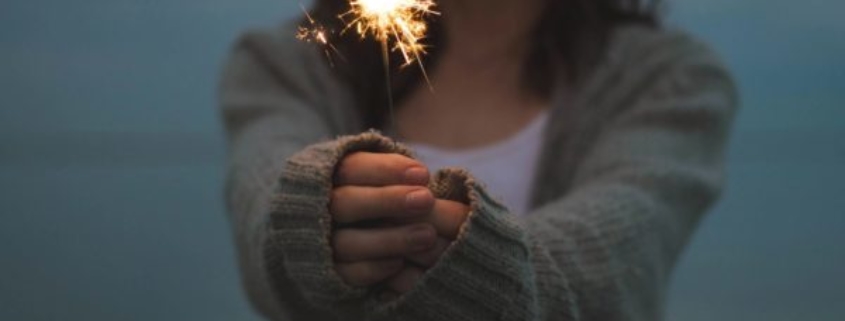Put Yourself Up

I tell mothers: Be careful how you bodytalk in front of your daughters. You could be teaching them the language of self-hate.
The universe was kind and gave me boys. I threw them in some undershirts and cut-offs, gave out shovels and told them to come back inside when they were sixteen. I swear, I would’ve felt ill-equipped to raise a girl.
Every day, I heard how my mom hated her fat stomach, how her chest had fallen, how when dad met her she weighed 95 pounds and look at her now. Just look at her! What I saw was an educated and ageless beauty with pretty clothes, a lot of kids, a house, and a man who came home to us every day—sometimes with flowers or a bucket of fresh peaches and a kiss for the high school sweetheart he still adored.
Who took the joy from my mother?
Women in her generation were carefully groomed and their idols were too. It took a long time to unwork the pointed bras, and women weren’t willing to throw away the stiff curler sets and pink styling tape that held their hair styles in place when they slept. Even though being girls in the seventies and eighties meant radical freedoms like halter tops and those dumb off the shoulder T’s with tanks, the need to be beautiful was our raison d’etre. And what’s so different now? Kate Middleton’s after-baby weight and Cardi B’s new look are flaunted at the check-out line. How we appear is fed to us.
The way women talk to each other, and about ourselves has, by design, been socially constructed to keep us from where we could be.
Pay no attention to that man while he draws a line through your school budget. Keep talking about the woes of a flabby tummy while your local government representative gets elected and votes down what you believe in, and keep up that self-derision.
It’s just where the dominating society wants you.
Down
On
Your
Knees
and ready to take it.
The message is confusing: Be a nice girl, be fierce, look pretty, be yourself, it’s all in your head, be who you are; who you are isn’t possibly good enough for our unreachable standards, you talk too much, are you really going to wear that? No more ice cream for you.
The complicated recipe that got us here doesn’t amount to a hill of beans. We could blame former icons such as Jackie O or  Madonna. Not Jesus’s mom. The other one who blended baby doll and vixen with respecting yourself. Any attempt to unpack some sort of message only proves how strong the concept of image–>capitalism–>language is. But, blame isn’t getting us anywhere either. Maybe it’s bad boys. Remember them? Those awful creatures who lap up real virgins then cast them off. Those boys laugh when girls fight each other. It’s sport to watch girls cry.
Madonna. Not Jesus’s mom. The other one who blended baby doll and vixen with respecting yourself. Any attempt to unpack some sort of message only proves how strong the concept of image–>capitalism–>language is. But, blame isn’t getting us anywhere either. Maybe it’s bad boys. Remember them? Those awful creatures who lap up real virgins then cast them off. Those boys laugh when girls fight each other. It’s sport to watch girls cry.
Powerful, oppressive men are made from boys like that and some grow up to run companies, colleges, courts, and countries.
Women have been set loose, tearing at each other over petty points for long enough. Throughout the decades of my mother’s life, fashion magazine covers have morphed from the perky homemaker to celery eating supermodels who seem unable to keep the front-page gig in exchange for infamous celebrities talking about their struggles with the body.
My mom dieted for a living. One summer when my brothers were training for sports, she made us peach milkshakes. For two weeks this went on every day. Four tall glasses waiting with the spoons handles sticking out.
Wash your hands.
I felt connected: orchard to table, mother and daughter, this is how we nurture. Those milkshakes captured love and sunsets.
But one day, there were only three glasses.
Where’s mine?
You’re getting too big.
I watched as my brothers slurped away until they drained the bottom, tinkled the spoon, and ran outside.
As it was encoded in me to downtalk my body, my sons had to hear how my voluptuous chest and belly had become two wallets and a purse. I can’t walk that back. Each year they grew, so did I. Who says you can’t wear maternity clothes to your kid’s graduation? So, yes, our sons are tuning into how we bodytalk, too.
* * *
I’m listening for different language: when the female comedian doesn’t need to body shock the audience to gain access and culture doesn’t weight shame. Really, who is the judge telling us how we all should look, anyway? I fear the culprit might be: women—when we put ourselves down, when we judge other women, when we compare. The activity keeps us ranking and categorizing, sometimes viciously.
When we practice self-hate and model it to the young, it may ease a path toward hating others.
 Hate–>power–>oppression. Now that sexual misconduct, violation, and rape aren’t under the rug, women will be stepping forward without guidelines, and what’s been scripted for decades doesn’t include much practice in conflict resolution, asserting rights, or respectful listening.
Hate–>power–>oppression. Now that sexual misconduct, violation, and rape aren’t under the rug, women will be stepping forward without guidelines, and what’s been scripted for decades doesn’t include much practice in conflict resolution, asserting rights, or respectful listening.
Writer, Matt Green, who works from home and raises two little girls, told me it’s time women take this moment. It’s now and it’s yours so don’t forsake each other. The world is finally watching. You have seized mankind and our worst ways, and now you must ignite. Don’t drop the mic.
We teach people how we want to be treated in every interaction we have. How we speak about ourselves and each other to our young might finally change the message.
Let’s stop and change our words.
Exchange bodytalk for actuation.
Practice with me:
Today I get to…
Using these fine hands, I will make…
Together, we are solving…
Tell me what your thoughts are about…
 Andrea Auten is a masters graduate in creative writing from Antioch University Los Angeles where she is a teaching assistant in the Post Master of Fine Arts in creative writing teacher certificate program. An arts teacher and performer from Dayton, OH, she lives and writes in Los Angeles. Her work can be found in the Antioch Voice. She is working on her second novel.
Andrea Auten is a masters graduate in creative writing from Antioch University Los Angeles where she is a teaching assistant in the Post Master of Fine Arts in creative writing teacher certificate program. An arts teacher and performer from Dayton, OH, she lives and writes in Los Angeles. Her work can be found in the Antioch Voice. She is working on her second novel.





